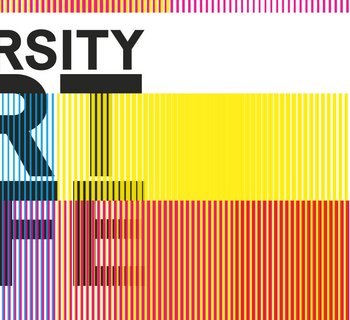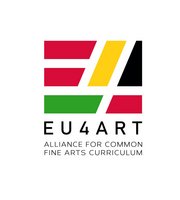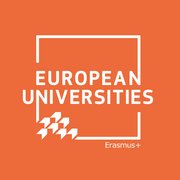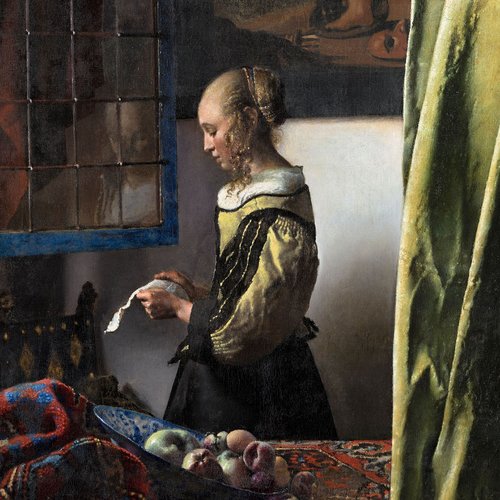
Museums and Universities of Diversity: How Can Museums and Art Universities Take an Active Approach to Living and Learning Diversity?
Online symposium hosted by the Staatliche Kunstsammlungen Dresden in cooperation with the Dresden University of Fine Arts (HfBK): 26 – 27 November 2020
[Translate to English:] Das Gehirn
The brain is the most complex organ in the human body. Every day, over 100 billion neurons process countless pieces of information, categorising them or, under the right conditions, anchoring them in our long-term knowledge store. Internet culture and user-generated content are responsible for a large proportion of the flood of information that many people are exposed to on a daily basis, which includes the increasing emergence of phenomena such as collective intelligence, with its far-reaching socio-political and global consequences. Museums and art universities also play an important role in this context, as they contribute significantly to the flow and transfer of information through the study and interpretation of (art and cultural) history and its communication.
What knowledge do art universities and museums communicate, and by what methods? What can and must institutions themselves learn, or even unlearn, from other cultures, countries and disciplines in terms of education and outreach? The online symposium “Museums and Universities of Diversity: How Can Museums and Art Universities Take an Active Approach to Living and Learning Diversity?” focuses on the conception and implementation of participatory and democratic processes in museums and art institutions, as well as on expanding diversity and inclusion through innovative and transcultural educational formats that leave room for new processes and developments.
The first day of the symposium will focus on educational concepts from different cultural and historical contexts that offer stimulating ideas for the working and teaching activities of museums and art universities. A prominent example of engaging with the history of a different cultural environment is the World University founded by Rabindranath Tagore (1861-1941). At his international art college in Shantiniketan, founded in 1919, art, crafts and decorative arts were held in equal regard as sources of creative vitality. According to Tagore, the inclusion of other cultures enables innovative transformations in one’s own culture. The Brazilian educator Paulo Freire (1921–1997) also provides important impulses for today’s society with his concept of “education for liberation”. He perceived education as a process that forms democratic and self-reflecting individuals who are able to think freely and thus help change society.
The open call for this first day of the symposium is explicitly seeking innovative methods that take account of transcultural and/or migration-related educational issues. The focus of this section will be on methods and formats that speakers’ perspectives will critically interrogate, making various facets of objects and narratives visible to a broad audience, and also demonstrating how culture and cultural artefacts are subject to constant change, interaction and blurring of boundaries.
The second day of the symposium will focus on innovative concepts regarding the use of space and materials. By activating different areas of the brain on the basis of auditory, visual, kinaesthetic or communicative stimuli, there is a greater probability of information being retained in the long-term knowledge store. Therefore, tactile and participatory experiences are regarded as important aspects of educational practice. The main priorities in this connection are the development and implementation of educational formats which include participative or active engagement, or which involve the public in research and the planning of exhibitions. How learning processes are addressed and influenced through spaces and materials will be analysed, discussed and examined from a wide variety of perspectives. In addition, the two panels will offer the opportunity to try out digital educational formats in order to explore the topics discussed more thoroughly.
The first panel, on the topic of space, will deal with questions regarding the design and atmosphere of an ideal learning environment, including room layout, architecture, exhibition design and content presentation. How can spaces be conceptualized for a diverse and active audience? What encourages visitors to absorb knowledge in museums and what is the optimal environment for them to do so? The influences of architecture and movement in space on learning processes and creative action will be presented and demonstrated in interactive online workshops. Together, we will utilise spaces for greater visibility and more active participation in exhibitions.
The question of what and how learning can occur through creating materials and by means of haptic experiences will be the focus of the second panel on materials. Attention will be paid not only to manual processes and the artistic and experimental treatment of materials, but also to the complexity of materiality and multiple perspective approaches in research and communication about works of art and objects in digital and analogue space. These topics are linked to the following questions: What determines artistic and artisan skills in a digital world, and how can these skills be communicated in (real or digital) space? What is the importance of handling materials in educational programmes? How have our views of craft techniques and their origins been created and shaped?
By issuing an open call, we are specifically inviting diverse projects and networks with a wide range of novel perspectives to participate in the symposium and contribute to an inspiring and interdisciplinary exchange of ideas. We are interested in real-life practical examples as well as historical investigations of various learning concepts, current learning methods utilising transcultural or migration-informed approaches, or with a focus on active engagement. We look forward to receiving abstracts on ideas or educational formats that consider or engage critically with the topics and the general theme of “Museums and Universities of Diversity: How Can Museums and Art Universities Take an Active Approach to Living and Learning Diversity?”
You are invited to submit an abstract in German or English by 15 September 2020 to: outreach@skd.museum. Please include information about the project or lecture, as well as about the individual or group who will conduct or present it. The abstracts should consist of two pages explaining the most important aspects of the projects or ideas and briefly stating who will give the presentation.
The symposium is being funded by the Federal Government Commissioner for Culture and the Media. It will take place in cooperation with Dresden University of Fine Arts (HfBK) as part of the EU4ART project and is thematically related to the symposium “How Can Decentralised Education Succeed?”, which will be organised by the Staatliche Kunstsammlungen Dresden in 2021.
We look forward to your online participation.
Date: Thursday 26 November and Friday 27 November 2020
Location: The symposium will take place online in German and English.
Partners and Sponsors
[Translate to English:] BKM

[Translate to English:] BKM





